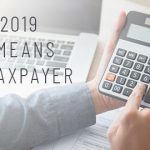The difference between getting a mortgage as self-employed and employed
When applying for a mortgage it’s very important to know what your mortgage broker will require in order for you to prove your income. Proving your income is (of course!) one of the most important aspects in successfully gaining your mortgage since it governs how much money the brokers are willing to lend you. However what many people are unaware of is how different the process of proving your income is in regards to whether you are employed or self-employed, so I thought I’d better write a quick blog just outlining the difference between the two processes.
Before we get started it’s worth noting that as of this moment (September 2017) a ‘rule of thumb’ is that a mortgage broker will lend you approx 4 times (multiply) your yearly income – so it’s imperative you can prove how much money you make per year in order to give you the best chance of being successful during your mortgage application.
How to Prove Income for a Mortgage when Employed
The process of proving your income when employed is fairly straight forward since it’s the most common method. You will be paid via PAYE (Pay As You Earn) and will receive copies of your payslips which prove your income, whether physically (paper) or electronically (online).
The mortgage broker will generally want to see 3 months (6 months in some instances) of your payslips and they’ll also want to see a copy of your P60 (which you’ll receive at year-end if you’ve been at your workplace for long enough).
Along with copies of your bank statements, the mortgage broker will correlate all of these figures and determine your take home pay as your income. I stress ‘take home pay’ since many people get excited when they’re on a big salary and start to calculate what they think they’ll be lent by the broker from their total salary. However this is not the case, the broker will mainly take into account how much money you personally receive after all your tax, National Insurance, student loan contributions etc are removed to ensure you can comfortably pay the monthly mortgage repayments on what you actually earn. So please don’t try and calculate what you’ll be lent via how much your overall salary is, it’s based on how much you take home after deductions – so be sure to bear this in mind when trying to work out how much a broker will lend you (multiply your ‘take home pay’ by 4 as an approximate estimate).
And it’s as simple as that if you’re employed! Just copies of your most recent PAYE payslips correlated with recent bank statements to prove how much you earn, so the mortgage broker can calculate how much money you can afford per month to determine how much they will lend you in total.
How to Prove Income for a Mortgage when Self-Employed
If you are self-employed then the process of proving your income is much different, mainly because you aren’t simply paid via PAYE. Instead you’ll obviously pay yourself and keep self-employed business accounts as proof of income for bookkeeping and tax returns etc.
At the end of each year you’ll have to complete your HMRC Self-Assessment Tax Return (SA302) which proves your income to the government – and it is the figures inputted into this document which you’ll need to prove your income to a mortgage broker. So firstly the mortgage broker will want to see 3 years of SA302 Tax Return forms and also a copy of 3 years business accounts (Excel Document etc) to check they are in coherence with the tax return figures.
Whilst we’re on the subject I want to quickly dispel a common ‘mortgage myth’ before going any further – mortgage brokers will NOT use your business accounts as proof of income, they use them to simply check they back-up what is being stated in your tax return. Instead they will use the figures listed in your Self-Assessment Tax Return (SA302) as your proof of income.
The reason for this is many years ago mortgage brokers would simply ask you to provide them with copies of your business accounts, as signed and supplied by a professional accountant. However this proved very easy to ‘fiddle’ your figures and you could easily make your income look much more ‘generous’ than it actually was. So instead brokers now go directly to the ‘source’ and judge your income from your self-assessment tax return, some firms wont even ask you to provide copies of the returns – they will go to the HMRC on your behalf and acquire the figures direct!
So this all sounds fine so far right? You’ve always filled in your SA302 forms so have got 3 years of tax returns/business accounts and have a nice income from self-employment..But here’s where it can become a little bit annoying. The mortgage brokers only take your PROFIT as your income NOT your overall income (turnover).
The reason this can be a little unfair is because one of the perks of being self-employed is that you can claim taxable expenses against your income to reduce your tax bill (and rightly so!). However every expense you claim against your income, the lower your final ‘profit’ becomes.
So although you may have had a nice income (turnover) last year…let’s say £40,000 – it is NOT this amount the mortgage broker takes as your proof of income. It only takes into account whatever remains after all of your expenses and deductions are removed from your total income, which can be VERY low especially if you have a good tax accountant who saves you money on your tax bill by knowing what you can and cannot claim.
So this is something to really bear in mind when going for a mortgage as a self-employed person, be sure your ‘profit’ figures are high since these are ultimately the figures the brokers will count as your income. If your profit figures are too low then you won’t be lent very much money so you may need to rethink how you complete your tax return for the next three years.














Share On